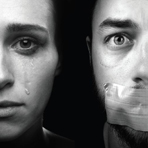3. Criminal protection of the society against corruption
In general, corruption is a threat for any legally consistent state, democracy and human rights, it undermines good government, fairness and social justice, disturbs economic competition, is a threat to stability of democratic institutions and to ethical basis of the society. The Slovak Republic so far lacks a special legal regulation which would separately govern punishment of corrupt behaviour in both public and private sectors. Corrupt practices are penalised by the criminal law and by other legal regulations, such as the Commercial Code and the Public Procurement Act.
In the Slovak Republic, the legislative framework penalizing criminal acts of corruption is represented by Act No. 300/2005 Coll., the Criminal Code, as amended. The above-mentioned legislative framework does not regulate the term “corruption”. In the Criminal Code it is only used as a heading of Section Three, Chapter Eight of a special part defining facts of criminal acts of passive bribery, criminal acts of active bribery, criminal acts of trading in influence, criminal acts of electoral corruption and criminal acts of corruption in sports.
Criminal offence of passive bribery
In relation to criminal acts of passive bribery, the Criminal Code defines three facts of the crime, which are regulated in Articles 328 through 330, the content structure of which is almost identical with definition of facts of criminal acts of active bribery under Articles 332 through 334 of the Criminal Code.
As a rule, the facts required to satisfy the objective aspect of the body of the criminal offence of passive bribery under Articles 328 through 330 of the Criminal Code include receiving, requesting or soliciting a promise of a bribe.
Offenders of an intentional criminal offence of passive bribery are exclusively limited to
1. a person performing certain employment or occupation, holding certain position or an office, with respect of which the person violates the obligations resulting from the employment or the position and having a legal basis in a generally binding legal regulation or his/her employment contract (Article 328 of the Criminal Code),
2. a person involved in procurement of things of general interest, i. e., discharge of responsibilities, proper implementation of which is in the interest of the entire society or certain social group, irrespective of whether the bribe is intended for the person himself/herself or, through his/her assistance, for a third party, under meeting the condition of causality between the bribe and the activity falling under the definition of procurement of things of general interest (Article 329 of the Criminal Code),
3. a foreign public official in relation to performance of official obligations or in relation to the office held by the public official, and aiming to win or to retain an inadequate privilege, irrespective of whether the bribe is intended for the public official or, through his/her assistance, for a third party (Article 330 of the Criminal Code).
2. a person involved in procurement of things of general interest, i. e., discharge of responsibilities, proper implementation of which is in the interest of the entire society or certain social group, irrespective of whether the bribe is intended for the person himself/herself or, through his/her assistance, for a third party, under meeting the condition of causality between the bribe and the activity falling under the definition of procurement of things of general interest (Article 329 of the Criminal Code),
3. a foreign public official in relation to performance of official obligations or in relation to the office held by the public official, and aiming to win or to retain an inadequate privilege, irrespective of whether the bribe is intended for the public official or, through his/her assistance, for a third party (Article 330 of the Criminal Code).
Criminal offences of bribery, as defined in Articles 328 through 330 of the Criminal Code can be committed by receiving, requesting or enforcing a promise of a bribe either directly from the briber, or by any or the above-mentioned actions committed through an intermediary, who is punishable for involvement in the criminal offence.
Criminal offence of active bribery
Criminal offences of active bribery, defined in Articles 332 through 334 of the Criminal Code, are in general defined as giving a promise, offering or giving a bribe. Like other forms of passive bribery, criminal offences of active bribery can also be committed through an intermediary, who is punishable in criminal proceedings.
Under the Criminal Code, the following is required for satisfaction of the objective aspect of the body of bribery offences:
- providing, offering or giving a promise of a bribe to make the recipient of the bribe to act or refrain from acting, and to commit a breach of his/her obligations resulting from his/her employment, occupation, position or office, or, providing, offering or giving a promise of a bribe to other person for the same reason, (Article 332 of the Criminal Code),
- providing, offering or giving a promise of a bribe to other person with respect to procurement of things of general interest, or, for the same reason, providing, offering or giving a promise of a bribe by the offender to other person (Article 333 of the Criminal Code),
- that the objective pursued by the offender is that the foreign public officer makes it possible, in connection with his/her official duties or the office held by him/her, to obtain or to retain an inadequate privilege in return for a bribe provided, offered or promised to the foreign public officer, or owing to his/her assistance to a third party (Article 334 of the Criminal Code).
The basic facts of criminal offences of active and passive bribery are further developed into separate qualified facts of the case in relation to circumstances which are a precondition for application of a higher sentencing rate of imprisonment, such as legal expression of severity of each corruption form. Higher severity of a criminal offence may result from the fact that the offender is a public officer, or that the offence is committed in large scale, amounting to EUR 133,000.00 or higher (Article 125 par. 1 of the Criminal Code) or the offence is committed in a more serious manner of acting (Article 138 of the Criminal Code).
Criminal offences of trading in influence
Unlike legal regulation governing criminal offences of passive bribery, provisions of Article 336 par. 1 of the Criminal Code, defining criminal offences of trading in influence, deal with penalization of intervention through a bribe, having impact exclusively on exercise of authority of a person, as defined in Article 328 through 330 of the Criminal Code.
Provisions of Article 336 par. 2 of the Criminal Code deal with penalization of an offender who, with assistance of another person acting as an intermediary, intervenes with entities listed in Article 332 of the Criminal Code (a person performing certain employment or occupation, holding certain position or an office), Article 333 of the Criminal Code (a person involved in procurement of things of general interest) and Article 334 of the Criminal Code(a foreign public official in relation to discharge of official duties or in relation to holding the office) holding necessary powers.
Both above-mentioned offences can be committed either directly or through an intermediary and, similarly to criminal offences of passive bribery and active bribery, criminal liability can be imposed not only for receiving and giving a bribe, but also for requesting, offering, promising and enforcing a promise of bribery.
A criminal offence (misdemeanour) of electoral corruption under Article 336a of the Criminal Code includes two basic facts of the case:
- the offender, either directly or through an intermediary, provides, offers or gives a promise of a bribe to a person having the right to elect, participate in a referendum or a plebiscite on removing the President of the Slovak Republic from the office (active bribery),
- the offender, either directly or through an intermediary, either for himself/herself or for other person, receives, requests or accepts a promise of a bribe (passive bribery – accepting a bribe).
In all above-mentioned cases, the purpose of the bribe is that the authorised person a) elects or votes in a certain manner, b) does not elect or vote in a certain manner, c) does not elect or vote at all, or d) does not participate in elections, referendum or plebiscite on removing the President of the Slovak Republic from the office.
Criminal offences of corruption in sports
The body of the criminal offence of corruption in sports under Article 336b of the Criminal Code presumes influencing the course of the competition or the results of the competition. The subject matter of this criminal offence is the interest in fair course and results of competitions.
Corruption in sports pursuant to Article336b of the Criminal Code is comprised of two basic elements, specifically:
a) active bribery (if the offender, either directly or through an intermediary, promises, offers or provides a bribe to another person),
b) passive bribery (if the offender, either directly or through an intermediary, either for himself/herself or for other person, receives, requests or solicits a promise of a bribe) with the intention “to act or to refrain from action to influence the course and/or results of a competition”.
The amendment of the Criminal Code introduces substantially higher penalties for commitment of criminal offences involving influencing of sporting competitions, both in respect of direct corruption in sports or corruption through an intermediary compared to so far applied elements of criminal offences of active and passive bribery.
Additionally, the amendment unifies penalties for active and passive bribery with respect to influencing results of sporting competitions. In the amendment, the lawmaker took account of the severity and the scope of criminal activities offended by persons directly involved in the sporting events (sports executives and administrators), as well as aspects of organized criminal activities which frequently occur in practice.
Additionally, the amendment unifies penalties for active and passive bribery with respect to influencing results of sporting competitions. In the amendment, the lawmaker took account of the severity and the scope of criminal activities offended by persons directly involved in the sporting events (sports executives and administrators), as well as aspects of organized criminal activities which frequently occur in practice.
Please, remember that:
-
To satisfy the objective aspect of the body of criminal offences of passive bribery requires receiving, requesting or enforcing a promise of a bribe.
-
Criminal offences of active bribery are defined by promising, offering or giving a bribe.
-
Criminal offences of trading in influence involve intervention affecting the exercise of power by the entities receiving bribes, as well as offenders committing the criminal offence, who, acting through another person, ensures intervention at the bribed entities.
-
Misdemeanour of electoral corruption involves two elements – the offender provides, offers or promises a bribe; and a passive corruption – the offender receives, requests or solicits a promise of a bribe in relation to elections.
-
Corruption in sports involves two basic elements: giving and receiving a bribe with the intention to influence the course of the competition or results of the competition.











